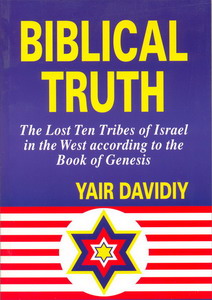
Symbol of United Israel
The Brit-Am Rose

Symbol of United Israel
|
Brit-Am Discussion Group |
Contents by Subject |
Research Revelation Reconciliation Contribute |
Site Map Contents in Alphabetical Order |
This Site |
|

|
The Lost Ten Tribes of Israel according to the Book of Genesis Biblical Prophecy Predicted that the Lost Tribes of Israel would be found amongst Western Nations. Biblical Verses analysed in the light of the Hebrew language, Rabbinical Commentary, and Historical Reality. A valuable educational, inspirational, and enjoyable work |
| PREVIOUS ISSUES |